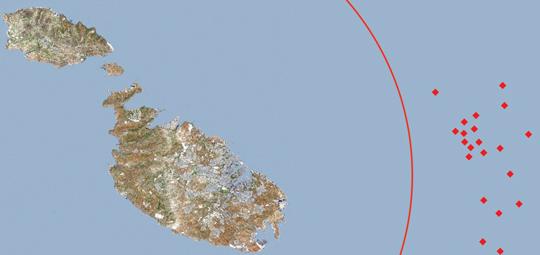When the mafia launders its money in mock gaming companies it sets up here and we fail to notice, we make our cut and someone is forced into slavery or drug addiction or is shot and killed in an alley with an unmarked weapon.
When a tax dodger steals money he owes to his own government to hide it under layers of moot loan agreements and inflated invoices, we make our cut and a family somewhere can’t afford education or medication.
When a tycoon acquires a Maltese passport to avoid detection when siphoning misappropriated money from his own country, we make our cut and an entire population somewhere is poorer for it.
Like lawyers and accountants for a mafia don we try to separate our work and our income from the blood our principals spill.
The Guardian today makes a point that should be obvious but is not because we prefer to look away. It follows up on IRPI’s revelations last week about trading of stolen Libyan fuel right under our noses and the hapless response of Malta’s so-called authorities that “they didn’t know”.
By ignoring the illegal trade of fuel stolen by militias from Libya, we make our cut but we prolong the suffering of the common people of Libya who are living through a bloody internecine war.
Long have we considered Libya our back-yard. Like nineteenth century colonists elsewhere, we befriended the local rulers, fattened silent partners and colonised the country in peacetime returning from there with chilling racial supremacist notions and speaking of our exploitation of the country as if it was some white man’s burden to civilise people who eat sand.
I’m generalising of course. This is a broad brush description of colonialism. Not every Maltese businessman in Libya bribed their way through. Not every one of them need confess to deeply held notions of racial supremacy. But all will probably admit there was a dark colonial side to our ventures there.
The end of the Gaddafi regime but a stop to that. But there are businessmen who thrive in times of war.
The civil war in Sierra Leone was financed by sharp-suited diamond traders in London and Antwerp and anywhere people where prepared to ignore the fact that the “miners” were militia rebels forcing people to extract diamonds to use their sale to finance their war.
The rebels in Congo do the same with gold and coltan that ends up in your jewellery or your mobile phone whilst paying for armies of indentured child soldiers.
When militiamen steal Libya’s oil to trade it in Europe with the help of Maltese smugglers and counterfeiters they are doing so to finance the continuation of their war. When Maltese authorities for whatever reason – incompetence, indifference, complicity – look away and do nothing to stop this they are helping extend the suffering of people in those wars.
People like me who think this is objectionable are being called elitist and holier than thou. Yesterday Robert Musumeci described the dissenters as “bigots that believe they are elected by the Holy Ghost; those that expect only they are on the right sight and anyone out there is rubbish”.
@Manwel_Delia l-elitisti li jrid jizgombra min-nofs @adriandeliapn huma dawk il-bigotti li jahsbu li huma l-maghzula ta’ l-ispirtu s-Santu. Dawk li jippretendu li huma biss qeghdin fis-sewwa u kulhadd hemm barra huwa zibel.
— Robert Musumeci (@ROB_MUSUMECI) May 8, 2018
Perhaps. I’m not sure the Holy Ghost would elect an atheist to her army though of course the Lord moves in mysterious ways. But I can assure Robert Musumeci this is not something I believe. I do however believe that the failure to stop the trading of oil that is financing the civil war in Libya is reprehensible and requires objection.
We can do something about this. We must do something about this.
